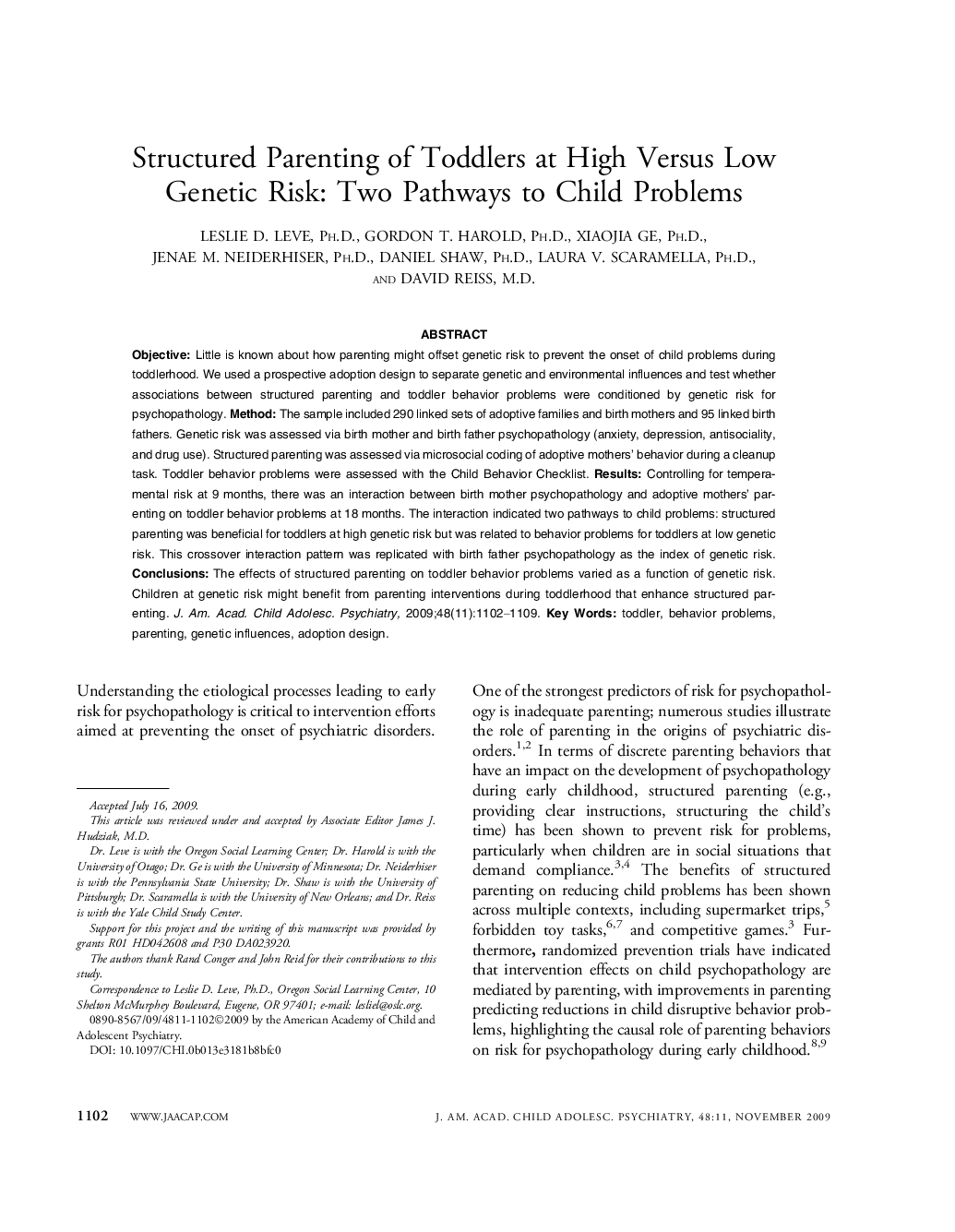| Article ID | Journal | Published Year | Pages | File Type |
|---|---|---|---|---|
| 325561 | Journal of the American Academy of Child & Adolescent Psychiatry | 2009 | 8 Pages |
ObjectiveLittle is known about how parenting might offset genetic risk to prevent the onset of child problems during toddlerhood. We used a prospective adoption design to separate genetic and environmental influences and test whether associations between structured parenting and toddler behavior problems were conditioned by genetic risk for psychopathology.MethodThe sample included 290 linked sets of adoptive families and birth mothers and 95 linked birth fathers. Genetic risk was assessed via birth mother and birth father psychopathology (anxiety, depression, antisociality, and drug use). Structured parenting was assessed via microsocial coding of adoptive mothers' behavior during a cleanup task. Toddler behavior problems were assessed with the Child Behavior Checklist.ResultsControlling for tempera mental risk at 9 months, there was an interaction between birth mother psychopathology and adoptive mothers' par enting on toddler behavior problems at 18 months. The interaction indicated two pathways to child problems: structured parenting was beneficial for toddlers at high genetic risk but was related to behavior problems for toddlers at low genetic risk. This crossover interaction pattern was replicated with birth father psychopathology as the index of genetic risk.ConclusionsThe effects of structured parenting on toddler behavior problems varied as a function of genetic risk. Children at genetic risk might benefit from parenting interventions during toddlerhood that enhance structured par enting. J. Am. Acad. Child Adolesc. Psychiatry, 2009;48(11):1102–1109.
